Mosquito bites are irritating already. Some people are even allergic to them. They become more upsetting if the bites bring you an infection. Since female mosquitoes are always out to get a sip of your blood, you should remember that they are the ones that spread infections. A female “skeeter” is attracted to its target because of the chemicals in sweat and the carbon dioxide in the breath. A suitable meal for a hungry female mosquito is any surface through which it can insert its proboscis. A perfect example is your skin. The itching and the red bump are the common symptoms of a mosquito bite.
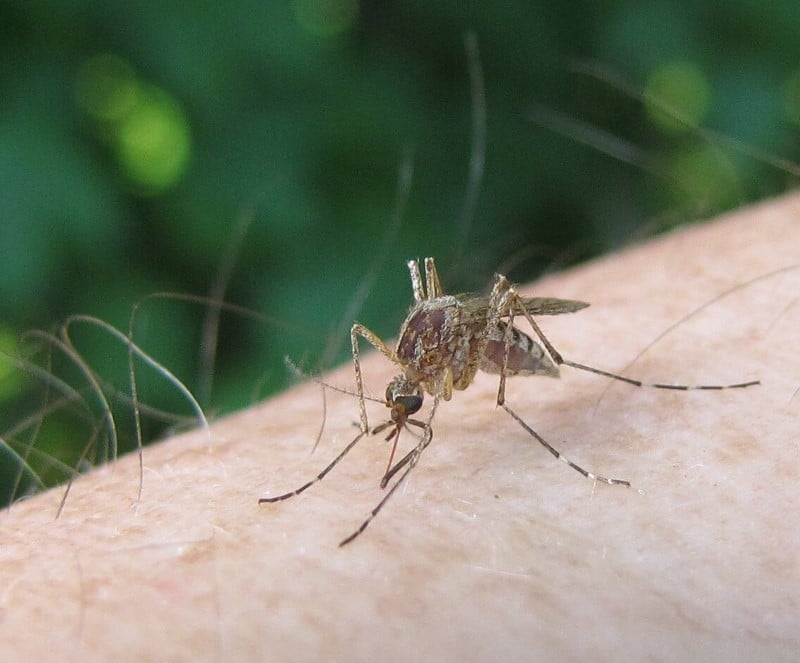
Mosquito Bite Infections and their Treatments
Mosquitoes are potent biters and transmitters of various infections. Below are the known infections or diseases that these insects spread all over the world:
1.West Nile Virus. Most cases of West Nile virus are transmitted by the bite of female mosquitoes. Most of those who acquire this infection are asymptomatic or do not develop symptoms. If they do, they only exhibit minor signs such as mild headaches and fever. Others develop detrimental complications such as inflammation of the brain or spinal cord. The mild signs and symptoms of the West Nile virus disappear on their own or are known as self-limiting. On the other hand, severe symptoms like intense headaches, sudden weakness, fever, or disorientation, need immediate medical attention.
If you are always exposed to the mosquitoes that carry the West Nile virus, you have a greater risk of contracting the disease. Mild symptoms of this disease are skin rashes, fever, vomiting, headache, fatigue, diarrhea, and body aches. The serious ones are severe headaches, high fever, seizures, stiff neck, muscle jerking or tremors, confusion or disorientation, coma or stupor, muscle weakness or partial paralysis. Muscle weakness can become permanent.
Treatment: Many people who are infected by the West Nile virus recover without any type of treatment at all. Severe cases of infection need supportive treatment through hospital admission. In the hospital, pain medication and intravenous fluids can be given as needed. Mild cases of infection just need OTC or over-the-counter pain relievers. These medications ease muscle aches and mild headaches. If you want to use aspirin, use caution, especially if you are going to use it on teens and children. Teens and kids who are still recuperating from flu-like symptoms or chickenpox should not take aspirin because this medication is associated with Reye’s syndrome (rare life-threatening disease in children).
Interferon therapy is now being investigated by experts. It is an immune cell therapy, which is treatment for the encephalitis brought about by the West Nile virus. There are studies that show that the people who receive this treatment recover much better than those who do not take the medication. More study is still required about this.
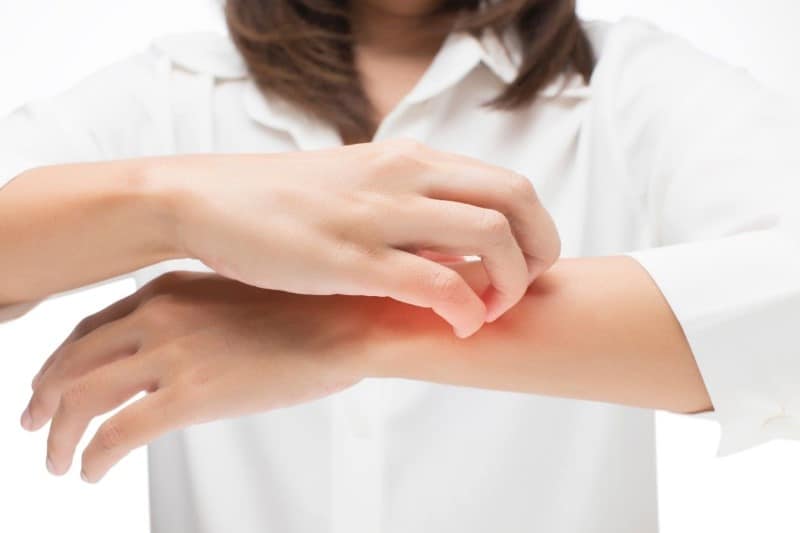
2.Encephalitis. Encephalitis is the inflammation of the brain. This condition is manifested by flu-like symptoms such as severe headache and fever. It can also bring about problems with movement and senses, confused thinking, and seizures. You should get immediate medical care if you start experiencing severe symptoms such as altered state of consciousness, severe headache, and fever. Encephalitis is often caused by a viral infection, possibly from one that is transmitted by mosquito bite. After diagnostic tests, such as brain imaging, lumbar puncture (spinal tap), EEG (encephalogram), and brain biopsy, necessary treatments should be applied.
Treatment for Mild Symptoms:
- Drink plenty of fluids
- Take anti-inflammatory drugs (acetaminophen[Tylenol], naproxen sodium[Aleve], and ibuprofen [Motrin IB, and Advil]) for fever and headaches.
- Get a lot of bed rest
- Anti-viral drugs: Zovirax (Acyclovir), Foscavir (Foscarnet), Cytovene (Ganciclovir)
- Supportive care:
- IV or intravenous fluids. This ensures appropriate essential minerals and proper hydration
- Assistance in breathing. Monitoring of heart function and breathing
- Taking anticonvulsant medications. Dilantin (Phenytoin)—prevents and stops seizures
- Taking anti-inflammatory drugs. Corticosteroids—help reduce pressure and swelling in your skull.
- Follow up treatments:
- Speech therapy. This allows the relearning of coordination and muscle control to produce words or speech.
- Physical therapy. This improves strength, mobility, flexibility, strength, motor coordination, and balance.
- This aims to teach new behavioral skills and coping strategies, to regard personality changes and to improve various mood disorders. Medication management can also be done.
- Occupational therapy. This aims to use adaptive items and develop the necessary skills that help with every day basic activities.
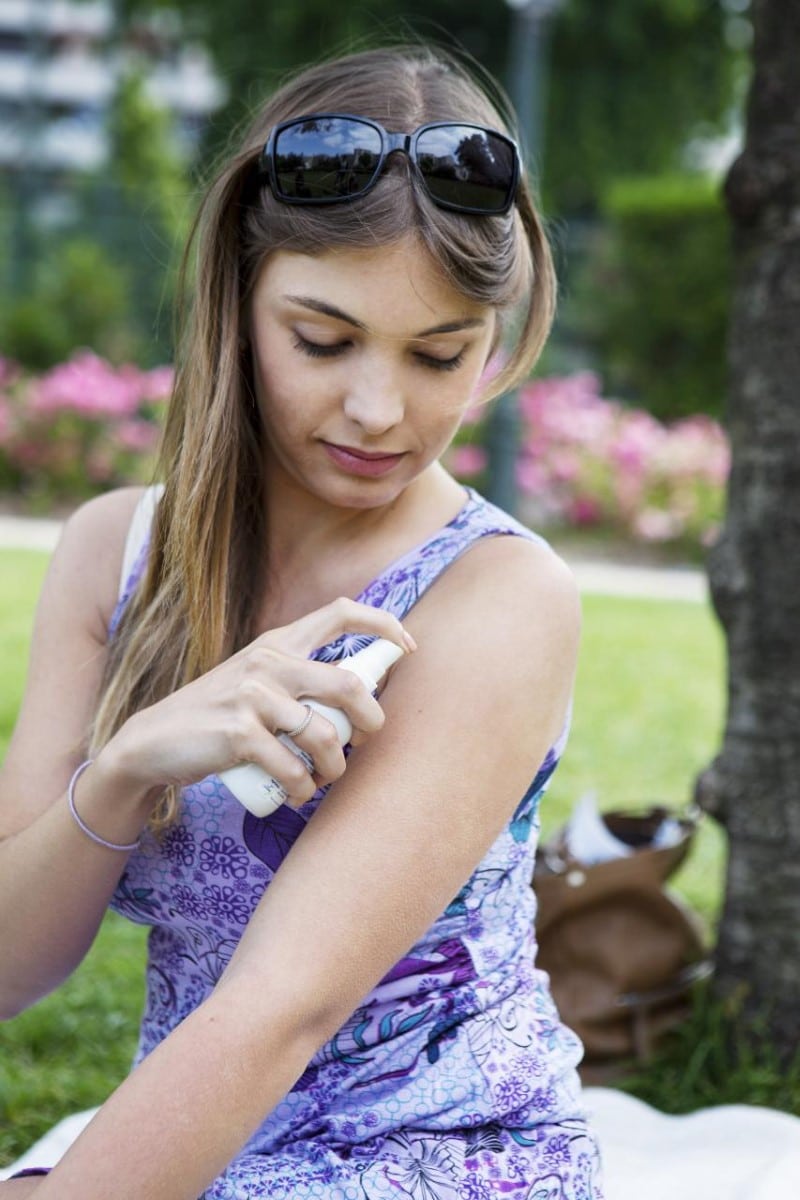
3.Zika. This mosquito-borne virus originated in Africa I the 1940s. It then spread to the Caribbean, Central America, South America, Pacific Islands, and Southeast Asia. Most people who are infected by Zika, do not know that they are infected. Zika symptoms are usually last for a week and are known to be mild. If you have Zika, you may suffer from rashes, fever, pinkeye, muscle pain, or joint pain. Zika has been associated with microcephaly and Guillain-Barre syndrome. Microcephaly is a type of birth defect, which causes a baby’s cephalic region to not develop fully and become small. Babies born with this condition have problems such as intellectual and developmental delays. Unfortunately, there are still no vaccines for to prevent Zika. The Center for Disease Control advises pregnant women to avoid Zika affected areas.
Treatment:
There is no specific treatment for Zika. The treatment’s target is to relieve the exhibiting symptoms with medications, rest, and fluids. Common medications taken for Zika are ibuprofen (Motrin IB, Advil) and acetaminophen (Tylenol) to relieve fever and joint pain. There are still no vaccines to prevent Zika. The usual pathway to treat Zika is:
- Symptom treatment
- Rest
- Hydration
- Take pain and fever medication
- Notify your healthcare provider before you taking other medication, if you are already taking medications for a diagnosed condition.
- NSAIDS (non-steroidal anti-inflammatory drugs) and aspirin should not be taken until the risk of bleeding is prevented and dengue is ruled out

4.Chikungunya. Chikungunya is a virus commonly found in South America and the Caribbean. It is now spreading in the United States. This virus is known for causing terrible pain in the joints. The pain may last for several weeks. Intake of fluids and ample rest should be taken, until the symptoms are relieved. Pain medicine may also be suggested by your doctor.
Western Treatment:
There are no known antiviral drugs to treat Chikungunya. You don’t have to worry at all because Chikungunya is cured by your own immune system in most cases. The established treatment is for symptoms manifested upon contracting the disease. This includes enough rest, eating more, hydrating, and taking medications for pain. You should avoid taking aspirin, to reduce the risk of bleeding.
To help soothe chikungunya, you can mix lime and honey. Specific medications are also advised for the patient to recover quickly. You can also perform light exercises to help ease joint pain. Most patients resort to home remedies to be relieved of chikungunya. Just remember that patients with diagnosed ailments and pregnant women should consult their healthcare providers. There is no vaccination yet for Chikungunya. There is an ongoing research on using DNA vaccination against this virus. Be patient. Chikungunya usually wanes after three days. Then, it may take up to fourteen days to recover fully. If the case of the elderly, recovery is usually slow. It usually takes up to three months for them to recover. Joint pain may even last for a year for them.
Ayurveda Treatment:
Patients with chikungunya resort to Ayurveda or traditional Indian medicine. Several concoctions or kashayams are:
- Sudarshan Churnam
- Amrutharista
- Dhanvantaram Gutika
- Mahasudarshana Churna
- Amruthotharam Kashayam
- Panchathiktha Kashayam
Herbs are the main ingredients of the Ayurveda treatment for Chikungunya. The reason behind this is because Sandhijwara (a condition like Chikungunya) is relieved by Ayurveda, specifically the joint pain that it causes.
Homeopathic Treatment:
Homeopathic experts say that there are drugs available to prevent Chikungunya and to accelerate a patient’s recovery from this virus. The medicine called Eupatorium perf is proven to prevent Chikungunya infections. Other homeopathic medications such as Arnica, Pyroginum, China, Rhus-tox, Influenzinum, and Cedron can treat the disease.
Until now, there is no antiviral treatment for Chikungunya. Upon the start of diagnosis, it is vital to exclude other mosquito-borne infections such as malaria or dengue.
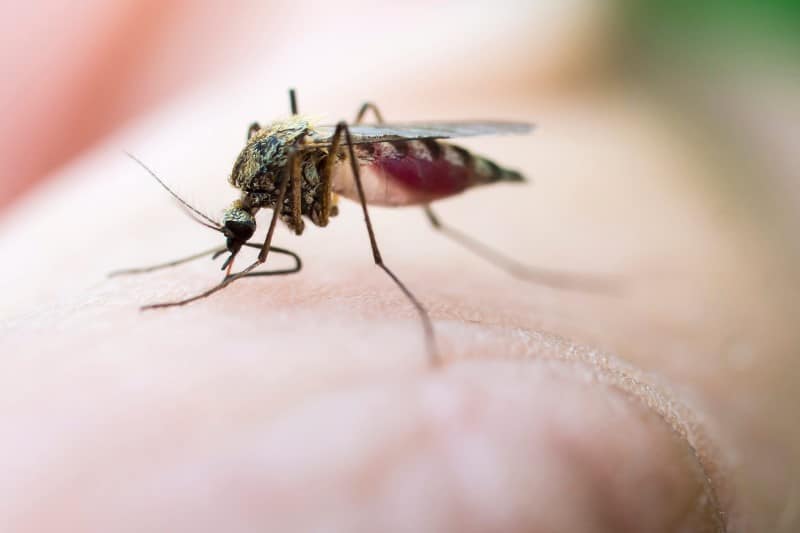
When you start to have DHF, you suddenly have headache and high fever. Then, you also experience gastrointestinal and respiratory symptoms including abdominal pain, sore throat, nausea, vomiting, and cough. Six days after the onset of the symptoms, shock happens. This happens with weak pulse, sudden collapse, circumoral cyanosis (blueness around the patient’s mouth), and clammy extremities.
Dengue involves easy bruising and bleeding, exhibited by petechiae (purple or red pin prick spots on the skin), bleeding gums, nose bleeds (epistaxis), blood in the stool (melena), and bloody vomit (hematemesis). Pneumonia and myocarditis (inflammation of the heart) may manifest.
Treatment:
Dengue patients are observed closely during the first days of infection because the recurrence of shock can happen. Since there is cyanosis, patients are given oxygen. Shock or vascular collapse needs quick replacement of fluids. To control bleeding, blood transfusions are given.
Take note that DHF is caused by a mosquito-borne virus. There are no antibiotics that can treat it. Antiviral drugs are not prescribed for DHF patients. Treatment for dengue concentrates om the relief of its symptoms. Home remedies like hydration and rest are important. NSAIDs and aspirin should only be taken under a healthcare provider’s supervision. Codeine and Acetaminophen (Tylenol) can be given for myalgia (muscle pain) and severe headache. If the patient is hospitalized, IV fluids may be administered.
6.Yellow Fever. Yellow fever is a mosquito-borne viral infection. It is transmitted by the bite of an infected mosquito, commonly found in Africa and South America. In humans, it usually damages the internal organs such as the liver. It can prove to be fatal. Humans cannot spread the infection to another human. But if a human is pricked or injected with a contaminated needle, that human can contract yellow fever. For other people, they initially do not have symptoms. For others, it is only after three to six days that the patient starts to exhibit the symptoms such as jaundice (yellowing of the skin), vomiting, headaches, muscle pain, and fever. Then, it paves the way for hepatitis, kidney damage, circulatory system problems, and liver damage. More advanced symptoms are shock, vomiting of blood, internal bleeding, multiple organ failure, and ultimately, death.
Treatment:
There is still no cure for yellow fever infection. The treatment for this virus focuses on dehydration, fever, and muscle pain. You should avoid taking NSAIDs and aspirin to reduce the risk of bleeding. Patients are usually hospitalized.
A yellow fever vaccine is recommended for adults and for kids older than 9 months.

7.Malaria. Malaria is a well-known mosquito-borne disease. Small outbreaks of this disease have occurred in countries that are warm and wet, such as the Pacific and Africa. Travelers are advised to take malarial prophylaxis before they travel to such areas. At present, experts are working on a vaccine.
Treatment:
The drugs prescribed to treat malaria are the following:
- Lariam (mefloquine)
- Aralen (Chloroquine)
- Coartem (artemether-lumefantrine)
- Malarone (atovaquone-proguanil)
- Clindamycin + quinine
- Artesunate
- Doxycycline + quinine
- Plaquenil (Hydroxychloroquine)
- Qualaquin (Quinine sulfate)
- Mefloquine
Treating a patient infected with malaria depends on the following:
- Pregnancy
- Medications taken by the patient
- Drug allergies
- Accompanying medical condition
- Area of infection and the status of its being drug-resistant
- Species of the infecting parasite
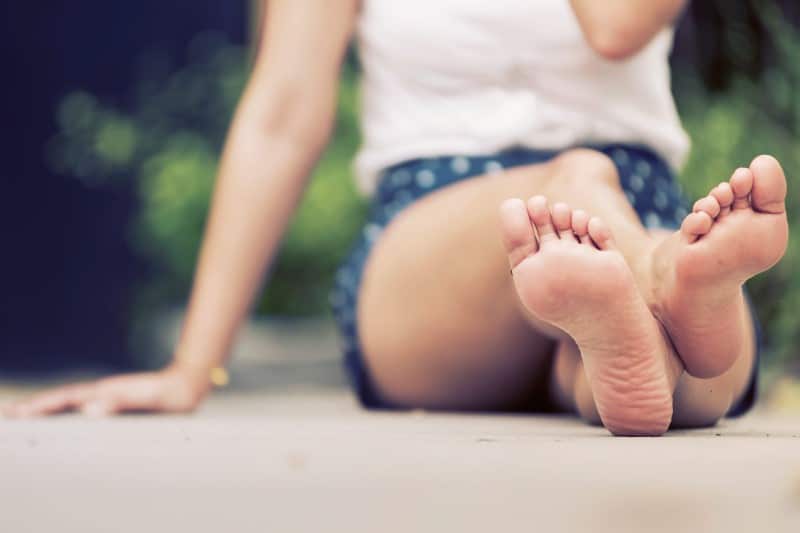
As a responsible member of your family, you should prevent these mosquito-borne infections. You can do this by using natural repellent solutions such as wearing protective clothing and eliminating stagnant water sources in your living area. Maintaining a clean yard is also one way to make sure that there are no stagnant puddles of water or containers that hold water. There is nothing better than preventing an infection whenever you can.